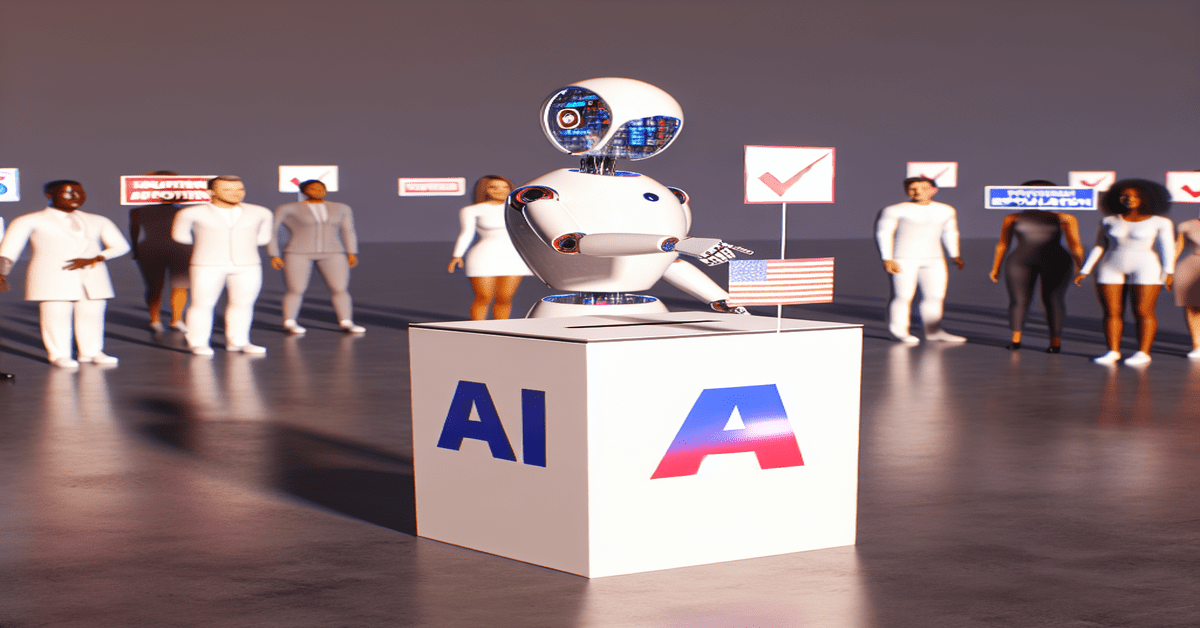The 2024 Presidential Election: AI’s Role in Shaping the Political Landscape
As we approach the 2024 presidential election, the role of artificial intelligence (AI) in political campaigns and voter outreach has become a topic of significant interest. While some experts predicted that the 2024 race would be dominated by AI-generated content, the reality has been somewhat different. In this blog post, we’ll explore the current state of AI in the election, its potential implications, and the efforts to regulate its use.
AI-Generated Content: A Double-Edged Sword
One notable example of AI-generated content in the 2024 election comes from former President Donald Trump’s campaign. Trump recently used AI-generated images to falsely imply an endorsement from popular singer Taylor Swift. While this incident garnered attention, it appears to be an isolated case rather than a widespread trend.
However, Trump has a history of sharing AI-created content, such as a deepfake video of himself dancing with Elon Musk and an image of Vice President Kamala Harris at a fictitious communist rally. These instances highlight the potential for AI to be used in misleading or manipulative ways.
The Threat of Misinformation
Experts have expressed concerns about the ability of AI to facilitate the spread of misinformation. As AI-generated content becomes more sophisticated, it becomes increasingly difficult for voters to distinguish between reality and fabrication. Rachelrey, director of the Bipartisan Center’s elections initiative, warns that while AI has not yet significantly disrupted the 2024 election, the threat persists. Malicious actors could still leverage AI to disseminate false information closer to Election Day, potentially influencing voter perceptions and decisions.
Regulatory Efforts to Combat AI Misuse
In response to the potential misuse of AI in political campaigns, regulatory bodies are taking steps to ensure transparency and prevent voter manipulation. The Federal Communications Commission (FCC) has proposed regulations that would require the disclosure of AI-generated robocalls and text messages. By mandating transparency, the FCC aims to combat voter intimidation and provide clarity regarding the source of political communication.
The Current AI Landscape in the 2024 Election
Despite the concerns surrounding AI’s influence on the election, the actual use of AI-generated content has not reached the levels initially predicted. While isolated incidents have occurred, such as Trump’s use of AI-generated images, the election has not been transformed into the “AI election” that many anticipated.
However, it is crucial to remain vigilant and proactive in addressing the potential risks associated with AI in politics. As technology continues to advance, it is essential for campaigns, regulatory bodies, and voters to stay informed and adapt to the evolving landscape.
Engaging Voters in the Age of AI
As we navigate the intersection of AI and politics, it is more important than ever to foster open and honest dialogue with voters. By providing accurate information, encouraging critical thinking, and promoting transparency, we can empower voters to make informed decisions and participate actively in the democratic process.
We invite you to share your thoughts and experiences regarding AI’s role in the 2024 election. How do you think AI will shape political campaigns in the future? What steps can be taken to ensure the responsible use of AI in politics? Join the conversation by leaving a comment below and sharing this post with your network.
#AI #Election2024 #PoliticalCampaigns
-> Original article and inspiration provided by Cecelia Smith-Schoenwalder
-> Connect with one of our AI Strategists today at Opahl Technologies


